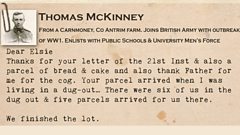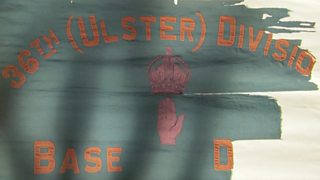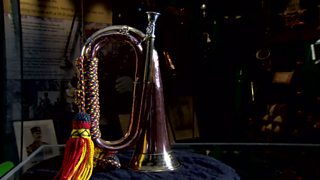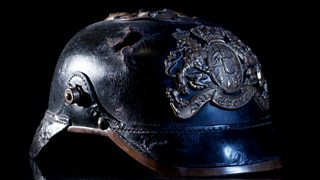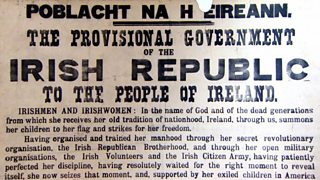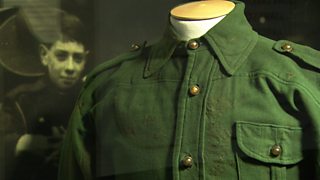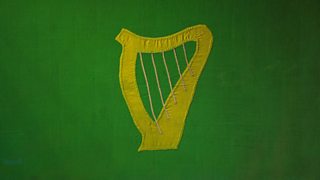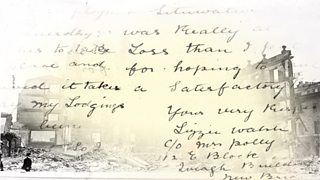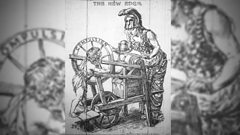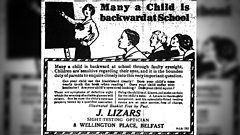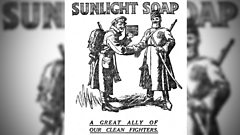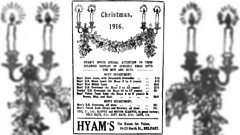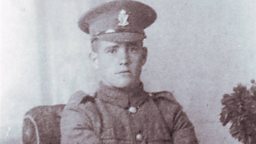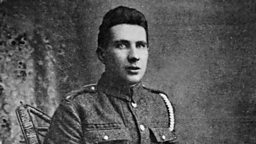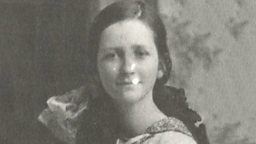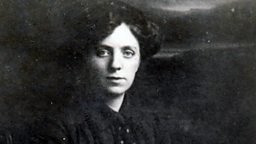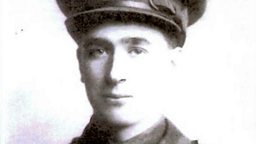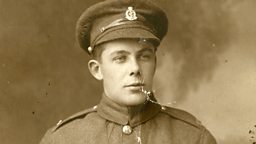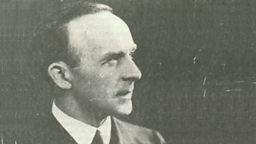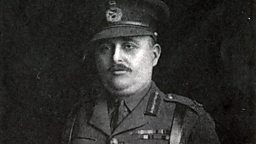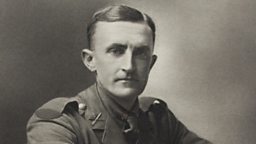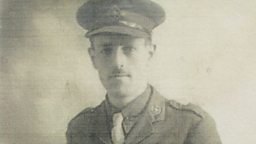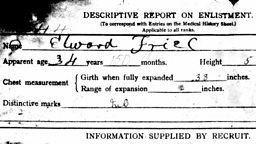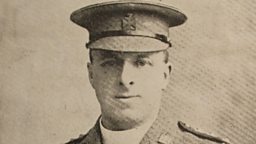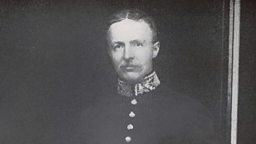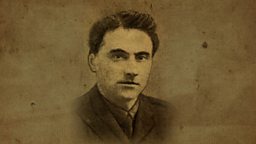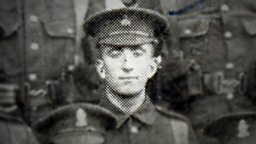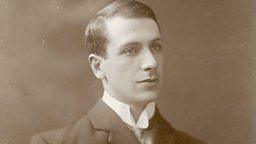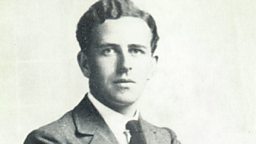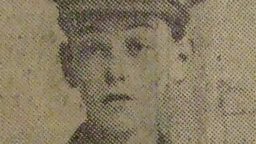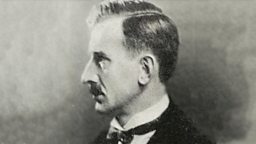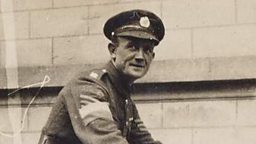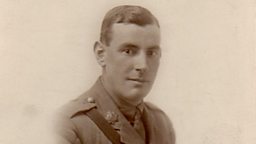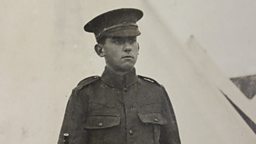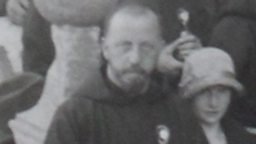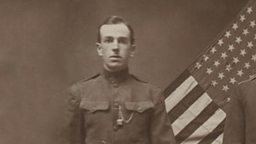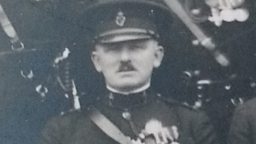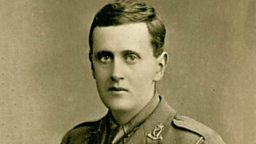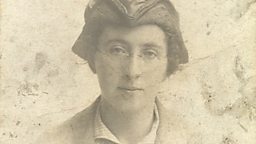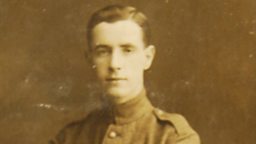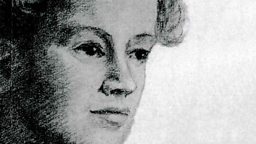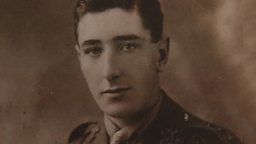Thomas McKinney
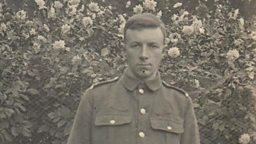
Sniper at the Somme
Thomas McKinney was born in 1893 to a prosperous farming family in Carnmoney, County Antrim. His mother having died when he was young, Tom and his sister Elsie were raised by his father John, his aunt Meg and his grandfather, William McKinney.
One can get used to almost anything
Tom attended the Royal Belfast Academical Institution (RBAI or 'Inst'), before being sent to the Ballyhaise Agricultural College in Cavan in 1910 to prepare him for his future inheritance - the comfortable house and farm of Sentry Hill.
Brought up in a Presbyterian family, Tom signed the Ulster Covenant in September 1912 - a public declaration of opposition to the idea of Βι¶ΉΤΌΕΔ Rule for Ireland. He did not, however, join the ranks of the Ulster Volunteer Force (UVF), a militia to which many other signatories pledged themselves.
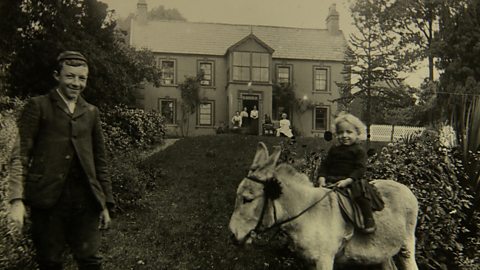
Sentry Hill farmhouse
Agricultural life in Ireland was profoundly affected by World War One.
Heeding Kitchener's call
When the United Kingdom declared war on Germany in August 1914, Tom McKinney enlisted in the Public Schools and University Mens' Force.
His schooling at 'Inst' made him eligible to join this force and he was enrolled on 8 September.
Training in Surrey
Following a medical exam and swearing of the oath of allegiance at Belfast City Hall, Tom was put aboard a boat bound for Heysham on Monday 21 September.
From there, he made his way to Epsom in Surrey for training as part of the 20th battalion of the Royal Fusiliers.
Sharp shooter
Tom proved himself a fine shot. He reported in a letter home from training that he had got one of the best scores in the company, hitting the mark with 80% of his shots.
Fusiliers in France
In November 1915, the 20th battalion were issued with their gas masks and field dressing kit before boarding the boat to Calais and travelling to the Western Front.
Tom's first months in France were spent on training manoeuvers and making improvements to the British trench system. It was hard work, and for Tom, it was also "the first Christmas that I have been away from home."
News from home
Tom regularly received correspondence from home, and was delighted to discover that Inst had won the Ulster rugby schools cup.
Word also reached him of the Rising in Dublin, about which he noted: "The Irish are a wonderful nation and the 16th Div have done well out here. I don't suppose the country will ever be peaceful."
The Somme
Life in the trenches
While life in the trenches was undoubtedly tough, Tom usually managed to remain upbeat in his letters home to Sentry Hill, as in this letter from 1 June 1916:
"I am sitting on a firestep with my back against a traverse writing this. A mine has just gone up on the left and the guns are going now. Shells are whistling over from our side while German shells are dropping and making a great row."
"... It is strange how one becomes quite used to this sort of thing. There is a nice warm sun and I feel quite comfortable. This is a very interesting life and one does not get into a rut.*"
"[footnote] *I suppose you could call a trench a rut"
Into battle
After undergoing training outside of the trenches for the 'big push', Tom's battalion headed to the Givenchy area of the Somme valley to occupy key British fortifications and offer backup to the Cameronian regiment who would be spearheading the attack in that sector on 1 July.
In the event, the Cameronians suffered heavy losses on the opening day of the Battle of the Somme and, on the 2 July, were withdrawn from the line and replaced by men from the 20th battalion of the Royal Fusiliers, including Tom McKinney.
Badly wounded
On 3 July, Tom was seriously wounded by shrapnel from a German shelling attack and immediately evacuated to a casualty clearing station.
His family were first informed in a letter written by fellow battalion member F.W. Eakin (a long-standing friend of Tom's going back to their time together at Inst) on 4 July. Eakin sought to assure Tom's father that "you need not have the slightest anxiety as to Mac's (as he is known to everybody) condition."
Official confirmation of the news was less optimistic. A telegram to the Carnmoney Post Office on 6 July declared that "Pte McKinney dangerously wounded" and "regret permission to visit him cannot be granted."
A letter from the Divisional Sister, Sister Dempster, on 7 July (the day he was moved to the general military hospital in St Omer) stated: "McKinney T.G. was admitted here today suffering from bomb wound thigh – his condition is serious."
Last letter
Tom initially rallied in defiance of the seriousness of his wounds, and was able to write a letter home to his father on 10 July 1916, a week after he sustained his injuries.
"... I am going on as well as can be expected but it will be a very slow business.
I cannot write much as I am very tired and sore. Hoping all at home are quite well.
I remain
Your affectionate son
Tom"
Dangerously ill
Sister Dempster continued to write to the McKinney family with regular updates on Tom's condition but, despite the occasional sign of hope, his condition deteriorated. Her letter on 18 July made the prognosis plain:
"Dear Miss McKinney
I regret to inform you Pte McKinney's condition is very bad. He is not so well again. His right thigh has been very badly smashed & the wound very septic, we had to remove part of the bone, which was all splintered – he has a certain amount of septic absorption – which is always so dangerous – & he is very weak. He is having every possible treatment for the wound, & the best surgeons. He is so pleased when he hears from home, do write daily to him.
Yours sincerely
Sister Dempster"
Death
Tom McKinney died on 19 June 1916.
These pages are based on personal testimonies and contemporaneous accounts. They reflect how people saw things at that time and are not meant to be a definitive history of the period.
The words of Thomas McKinney
Voices 16 objects
Voices 16 galleries
Credits
Image and letters reproduced by kind permission of ().
Biographical information is taken from Sentry Hill and the Great War - Tom's Story, with kind permission of its author .
